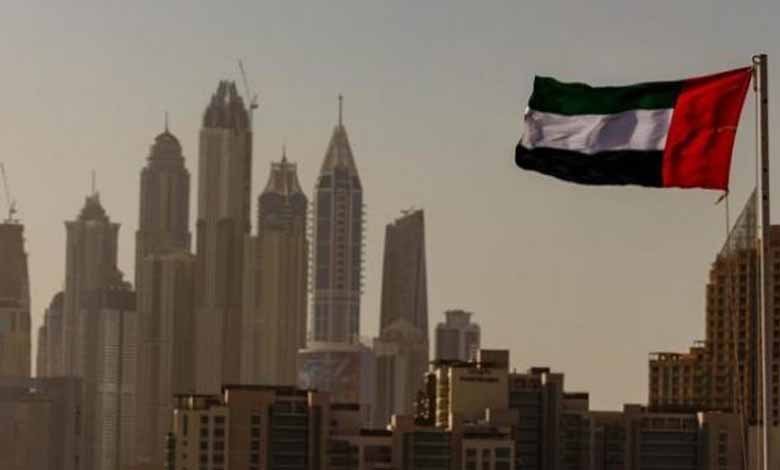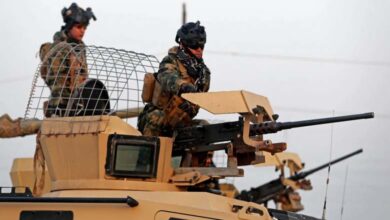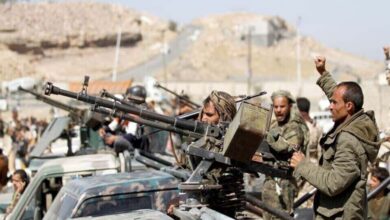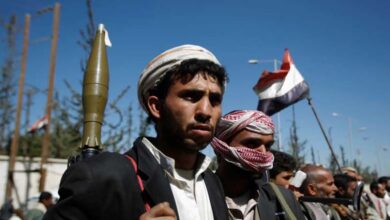UAE: Efforts to protect and promote human rights for 50 years

The United Arab Emirates has attached the highest priority to the values of respect for human rights, drawing on its heritage and its Constitution, which guarantees civil liberties for all.
Sheikh Khalifa ben Zayed Al Nahyane, President of the United Arab Emirates, issued Federal Law No. 12 of 2012 on the National Human Rights Commission, the culmination of a long march of efforts to protect and promote human rights in the Emirates over the past 50 years.
The Act imposes on the Legal, Independent and Financial and Administrative Authority the exercise of its functions, activities and competencies, which include a list of competencies and powers associated with the promotion and protection of human rights in the State.
In accordance with the articles of the law, the Authority supervises awareness-raising campaigns, disseminates a culture of human rights and makes suggestions to the competent authorities on the compatibility of legislation and laws with international human rights instruments, covenants and conventions to which the State is a party and their follow-up.
The Commission monitors any violations or abuses of a human right, verifies their validity and reports them to the competent authorities, in addition to participating in international and regional human rights forums.
The United Arab Emirates has a long record of achievements in the promotion and protection of human rights, based on its cultural heritage, its Constitution guaranteeing civil liberties for all and its legislative system promoting the principles of justice and equality, in line with the principles of the Universal Declaration of Human Rights.
Since its founding, the United Arab Emirates has been working to establish a tolerant, multicultural society in which people from all parts of the world live in harmony and harmony with one another. It has also succeeded in establishing an integrated system of legislation and executive measures to protect and promote the rights of women, children, senior citizens, people of determination, workers and prisoners, as well as in contributing effectively to the fight against human trafficking at the regional and international levels.
Constitution
The UAE has guaranteed the civil rights and freedoms of individuals through its Constitution, which stipulates that all persons are equal before the law. There is no discrimination between citizens of the State on the grounds of origin, domicile, religious belief or social status. The Constitution also provides for the protection of personal freedom by the law for all citizens. No one may be arrested, searched, detained or imprisoned except in accordance with the provisions of the law. An accused person is presumed innocent until proved guilty and his physical or moral harm is prohibited.
The Constitution of the United Arab Emirates defined the freedoms and rights enjoyed by all citizens, prohibited torture, arbitrary arrest and detention, prohibited degrading treatment in various forms, and protected civil liberties, including freedom of expression, the press, peaceful assembly and association, and the exercise of religious beliefs.
Tolerance and coexistence
The United Arab Emirates has promoted the values of tolerance and coexistence through its federal law on combating discrimination and hatred, with the creation of the Ministry of Tolerance and Coexistence, the adoption of the National Program for Tolerance, the establishment of international partnerships for capacity-building, the prevention of violence, the fight against terrorism and crime such as the International Institute for Tolerance, the Hedayah Center for Combating Violent Extremism and the Sawab Center.
In February 2019, the United Arab Emirates hosted the World Conference on Human Fraternity, which aimed to stimulate dialog on coexistence and brotherhood among human beings and ways to promote it globally. The conference issued a document entitled “Human Brotherhood for World Peace and Co-existence”, signed by His Eminence the Grand Imam, Professor Dr. Ahmed Al-Tayeb, Sheikh of Al-Azhar Al-Sharif, and His Holiness Pope Francis of the Catholic Church.
The data, issued by three major international authorities specialized in competitiveness, showed that the United Arab Emirates was included in the list of the 20 largest countries in the world in eight competitiveness indicators related to tolerance and coexistence in 2020. The list of those international references included the International Institute for Administrative Development, the Legatum Institute and the ISEAD College, according to what was monitored by the Federal Center for Competition and Statistics.
Jurisdiction
The judicial system in the United Arab Emirates is fully independent, and the Constitution does not allow any interference in its affairs by any party. Citizens, residents and visitors in the State have the right to a fair trial. The Emirates provides the public with access to its laws and the Official Gazette.
The United Arab Emirates believes in the need to provide legal and judicial assistance to those who cannot afford legal fees. According to the Constitution, everyone must have the right and the ability to have a lawyer who is able to defend them during the trial, so that economic and social conditions do not constitute an obstacle preventing anyone from having easy access to justice.
Rights of prisoners
Correctional facilities in the United Arab Emirates respect the rights of prisoners. These facilities are considered rehabilitation facilities. The State applies the Standard Rules for the Treatment of Prisoners in Penal and Correctional Institutions in the State. Convicts are separated according to the nature of their crimes.
For its part, the Ministry of the Interior provides a special program for the rehabilitation of Emirati prisoners to the labor market. This program is run by higher technical colleges and is available to prisoners who have one or two years of their sentence. The Ministry of Community Development also provides financial assistance to prisoners’ families.
The Ministry of Interior’s al-Faraj Fund also assists squatters, inmates of penal and correctional institutions, and their families who find themselves struggling with life’s troubles in the absence of their main breadwinner.
Women’s rights
The United Arab Emirates ranks first regionally and 18th globally in the United Nations Gender Equality Index. It also ranks first in the Middle East and North Africa in the World Bank’s Women, Business and Law Report 2021, achieving full recognition in five areas, including freedom of movement, employment, wages, entrepreneurship and pension.
During 2019 and 2020, the UAE witnessed the passage of 11 new laws and legislative amendments through which women made a number of gains, such as equal pay for work in the private sector, salaries and wages in government agencies, as well as in parliamentary representation.
The new laws and legislative amendments included new gains for women in the field of protection. The United Arab Emirates had issued a law on domestic violence that protected all individuals, male and female, without discrimination. It had also issued a law punishing by imprisonment and a fine or by one penalty anyone who subjected a female to a detrimental act by words or deeds in a public road or a place under construction.
The United Arab Emirates stands at the forefront of countries advocating women’s rights on the global level. According to a report issued by the Ministry of Foreign Affairs and International Cooperation, the amount of UAE foreign aid to empower and protect women and girls during 2016-2019 reached US$1.68 billion.
People of determination rights
The United Arab Emirates guarantees people of determination ”persons with disabilities” equality with their healthy counterparts and non-discrimination based on their specific needs in all legislation, economic and social development programs and policies.
Federal Act No. 29 of 2006 aims to guarantee the rights of people of determination, provide them with all services within their capabilities and means, and provide them with a decent living.
According to the law, special needs may not be a reason to deprive people of determination of access to rights and services, particularly in the area of social, economic, health, educational, professional, cultural and recreational care and services.
The United Arab Emirates is making concrete efforts to integrate students of determination into the educational system. Accordingly, students in this category can enroll in any school without any exception.
Labor rights
“The UAE regularly assesses all aspects of employment in the country, from recruitment and employment to adequate housing, to ensure the rights of all migrant workers, to treat them with respect and equality, and to enable them to report labor disputes and abuse with ease and reliability.”
“The UAE prohibits the imposition of recruitment fees on workers and potential employees, establishes security measures to protect workers from unsafe recruitment offices, prohibits the confiscation of workers’ passports, and does not require workers to obtain permission from their employer to leave the country.”
“The UAE has ratified nine major ILO conventions related to workers rights, and has enacted several laws to protect workers’ rights, including laws on employment, wages, housing, and health.”
In 2015, the Ministry of Human Resources and Resettlement issued three ministerial decrees Nos. 764, 765 and 766, which included labor reforms aimed at ensuring that relations between workers and employers are concluded voluntarily and on the basis of employment contracts that are only monitored by the Government under the Labor Code.
In 2017, the United Arab Emirates promulgated the Auxiliary Service Workers Act, which is contained in 41 legal articles dealing with all matters relating to the conditions and regulations for the recruitment of this category of workers and guarantees of their enjoyment of the rights guaranteed by the law, decent human treatment and freedom from any form of exploitation.
Workers in the United Arab Emirates are fully protected against racial discrimination during their stay in the State. The working environment in the United Arab Emirates is characterized by equality between men and women in the workplace, taking into account the granting of maternity leave periods or paid maternity leave to women.
“Since 2009, the UAE has implemented a system of wage protection, which has contributed greatly to stabilizing labor relations and providing a safe working environment, as it protects workers’ right to receive their wages without delay in accordance with their contracts.”
“The UAE is keen to provide workers with adequate and adequate labor housing in line with internationally accepted standards, and labor cities are monitored regularly to ensure they meet requirements and requirements, while severe penalties are imposed for violating businesses.”












